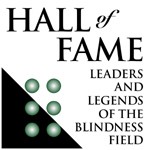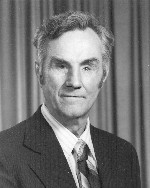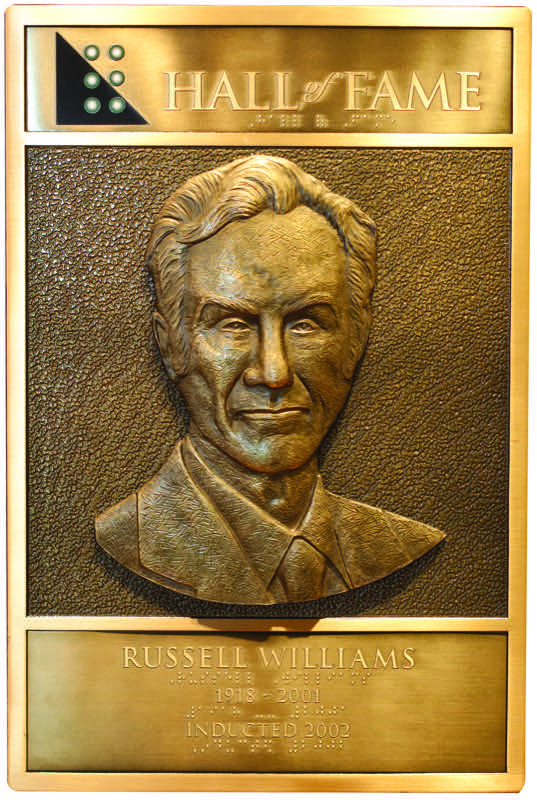Russell Williams
Inducted 2002
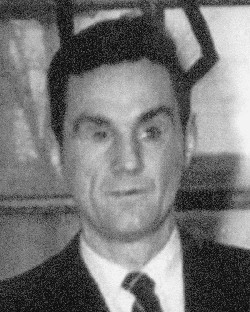
Russ Williams (1918-2000) was born in Auburn, Indiana in 1918 and graduated as a secondary education major from Central Normal College in Danville, Illinois. He taught and coached athletics one year before entering the U.S. Army in 1942. He married Jean, a secretary to the Chief of Medical Service at Valley Forge Hospital, in 1945.
Russ Williams was blinded by enemy action in France during 1944 and was rehabilitated medically at Valley Forge Army General Hospital and then transferred to Avon Old Farms Convalescent Hospital where the emphasis was on vocational activities. Even at this early stage in his career he recognized the importance of hope in life’s potential and of putting the responsibility for the rehabilitation process on the blind person as early as possible in their training. The following year he was employed as a counselor and instructor in the rehabilitation program for the blind at Valley Forge at a time when Richard Hoover was beginning to develop the techniques of the use of the long cane.
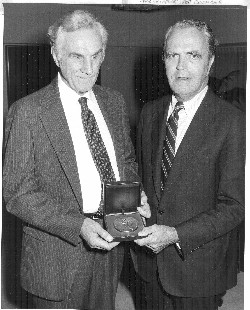
With the encouragement of Warren Bledsoe, in 1948, Russ Williams initiated the Blind Rehabilitation Center at the V.A. Hospital, Hines, Illinois and became its first Chief. He is probably best known for his significant accomplishments in developing the rehabilitation program at Hines of which orientation and mobility was the key factor. He was responsible for the recruitment, selection and training of the very first orientors at Hines. His first hand experience, knowledge of mobility and his own performance skills in mobility were key factors in the refinement of standardized techniques in mobility instruction. His example in mobility was a perfect model for newly blinded veterans to emulate and was largely responsible for the success the fledgling orientors had with the early Hines veterans. He has acted as an advisor on research and development of electronic guidance devices.
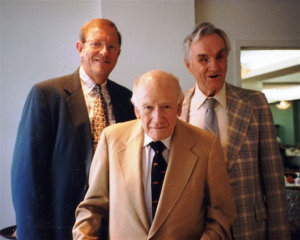
Eleven years later in 1959, Russ Williams was promoted to Chief of Blind Rehabilitation in the Department of Medicine and Surgery, Veterans Administration Central Office in Washington, D.C. He served in that post until his retirement. During this time he was influential in encouraging Don Blasch to begin a graduate training program in O&M at Western Michigan University.
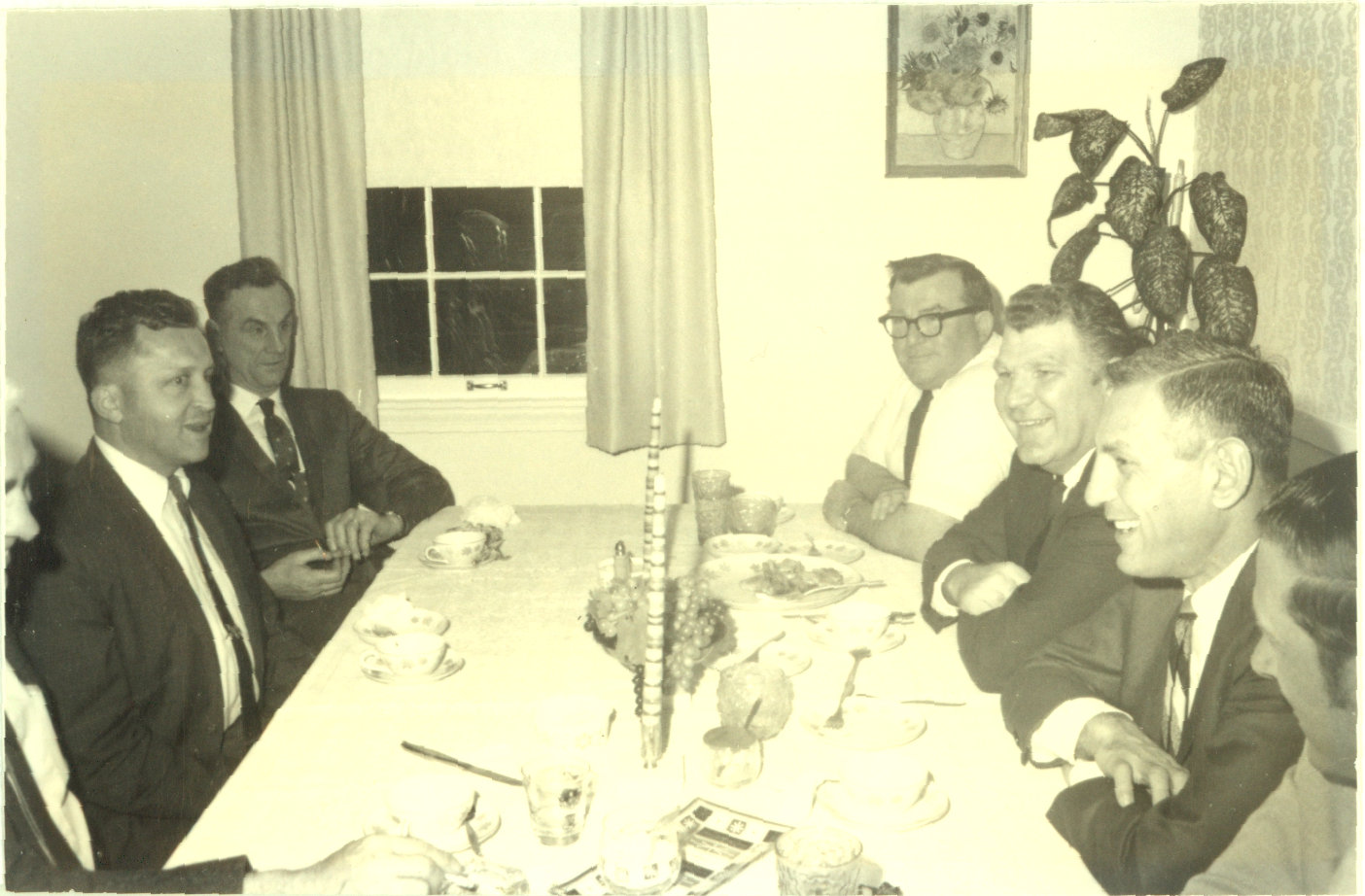
For his accomplishments Russell Williams was the recipient of an Honorary Doctorate from Western Michigan University. He received the Blinded Veterans Association Award in 1953; the Lawrence E. Blaha Memorial Award from AAWB in 1975 for his leadership and contribution to the betterment of orientation and mobility for blind persons; the Ambrose Shotwell Award from AER for national and international leadership; the Migel Medal from AFB; and most recently the Division of Veterans Services of AER has named its outstanding service award in honor of Russ Williams.
Photos: Russell Williams receiving the Migel Medal from Jack S. Crowley; Russell Williams with inductees Richard Welsh (left) and Warren Bledsoe (center); First AAWB Div. 9 Certification Committee, 1968; Robert Whitstock, Russell Williams, Pete Wurzburger, and others.
Side one of a letter from Russ Williams to Warren Bledsoe, regarding possible uses for the VA’s new documentary, “The Long Cane.” (.mp3/10 minutes/9.3MB)
